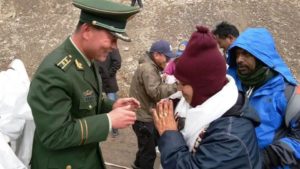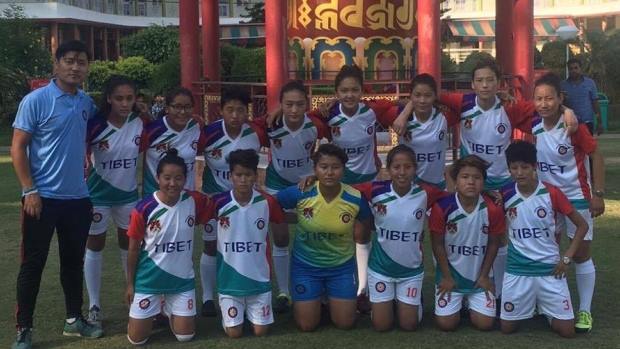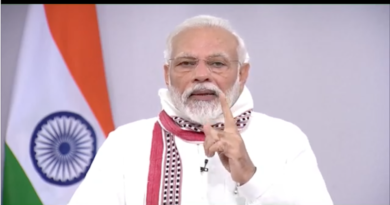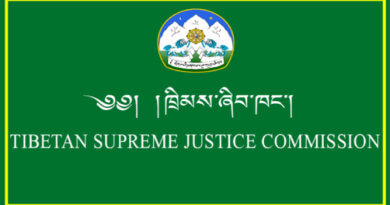China lodges protest with India over Sikkim ‘incursion’, hints Mansarovar yatra off till troops are withdrawn
Sutirtho Patranobis, Hindustan Times | Beijing |June 27, 2017
Beijing indicated that Kailash Mansarovar yatra, one of the major confidence-building measures between India and China, will be used as a lever in the incident.
China on Tuesday lodged protests in Beijing and New Delhi against Indian soldiers’ “trespassing” into its territory and indicated the Mansarovar Yatra would remain suspended till India “withdrew” its troops.
The ministry of foreign affairs made it clear it would leverage the annual Kailash Mansarovar Yatra, a major confidence-building measure between the two often-bickering neighbours, in the standoff along the Line of Actual Control (LAC) in Sikkim.
“As to the Indian pilgrims’ journey through Nathu La pass in the Sikkim section, I think the Indian side is very clear about it. For a long time, the Chinese government has made enormous efforts to provide necessary convenience for those Indian pilgrims. But recently, the Indian border personnel trespassed the Chinese border to obstruct construction so we have taken necessary actions,” ministry spokesperson Lu Kang said on Tuesday.
China had put the pilgrimage on hold out of security concerns, he said.

“So for the upcoming actions we have to depend on what the Indian side will do. They have to take actions to improve the security situation,” Lu said, spelling out the bargain.
A few days ago, China didn’t allow a batch of Indians to go through the Nathu La pass on way to Mount Kailash, held sacred by the Buddhists, Hindus and Jains.
They were to cross over on June 19 but failed to do so due to inclement weather and had to wait at the base camp. Four days later, China denied entry to them citing damage to roads.
Earlier in a statement, the ministry accused the Indian military of incursion into its territory along the LAC and obstructing its personnel from carrying out routine work.
It also said because of the trouble in the area, Beijing suspended the 21-day pilgrimage through Nathu La.
It’s rare for China to officially accuse India of incursion across the LAC but the face-off between the forces in Sikkim – and the media reports and reaction in India – would have convinced Beijing to come out with not one but two statements within hours.
It is also the first time that Beijing has specified the reason for suspending the annual pilgrimage after a weekend of silence.
At a regular ministry briefing on Tuesday, Lu said Beijing had lodged protests with the Indian embassy and with relevant authorities in New Delhi.
“We have lodged solemn representations in Beijing and New Delhi to elaborate on our solemn position. Our position to uphold our territorial sovereignty is unwavering. We hope the Indian side can work with China in the same direction and take immediate withdraw the personnel who have overstepped and trespassed into Chinese border,” Lu said.
Earlier news agency PTI reported from New Delhi that Indian and Chinese troops scuffled near the Doka La area in the first week of June before soldiers from Peoples Liberation Army (PLA) damaged bunkers on the Indian side.
Both the PLA and the Chinese foreign ministry gave a different version of events.
Recently, Indian border guards in Sikkim section crossed into China, obstructed Chinese border troops in the Donglong area and “China has taken corresponding measures”, the ministry had said in a terse statement.
It came soon after the PLA released a statement on Monday night, blaming the Indian military of creating trouble along the Sikkim LAC.
Inaugurated in June 2015, the Nathu La route — administered by the Tibet Autonomous Region government on the Chinese side — cut short the trekking time, allowing pilgrims to make the journey on bus.
Till then, every year 18 batches of 60 Indians undertook the journey through the Lipu Lekh pass in Uttarkhand, close to Nepal border. The route, which is still operational, is tougher.




